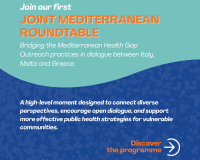In Italy, 70% of individuals are unaware that they are HIV-infected. In 2019, there were 2,531 new HIV diagnoses, and heterosexual transmission accounted for 42% of cases. The most significant problem in Italy is the increased number of late diagnoses. INTERSOS has noted that agricultural seasonal workers are affected by infectious diseases, and planned controls are not precisely followed, leading to a high risk of therapy interruptions.
In Apulia, the average incidence of new diagnoses of HIV infection in foreigners was 27.8 cases per 100,000 foreign residents, with a proportion of 17.2%. Transmission between MSM clearly prevails in Italian residents, while in foreigners, heterosexual transmission is more common. The problem of late diagnosis is relevant in Apulia, as almost 55% of diagnoses in Apulia occurred in subjects defined as “Late Presenters” and over 40% in AHDP/AIDS subjects. Currently, there is no screening program aimed at the early diagnosis of STDs in the Apulia region.
In Sicily, the figures collected by the “Sistema di sorveglianza nazionale dell’Istituto Superiore di Sanità” identify Region Sicily as having a medium-high rate of incidence. In the period 2009-2021, out of the 2669 HIV cases, migrants represent 26% out of the total, of whom 81% are Africans, and out of the total of females, 63%. The general ratio M/F is 7.7 Italian and 0.7 migrants (African).
In Malta, according to a report published jointly by the European Centre for Disease Prevention and Control (ECDC) and the World Health Organization Regional Office for Europe, there is the highest HIV incidence in Europe, with a rate of 15.9 per 100,000 population, way above the 3.7 EU average. 77.6% of new HIV diagnoses were in men, and 70% were in men who have sex with men (MSM). Data concerning countries of origin indicate that 55% of new HIV diagnoses in 2021 were in international migrants, 29% of whom originated from third countries and 26% from Europe. The Maltese Genito-urinary clinic (GUC) of Mater Dei Hospital is the only State-run sexual health clinic of the Maltese islands, and trends of STIs including chlamydia, gonorrhea, and syphilis have shown to be progressively increasing over recent years, indicating an urgent need to curb this rising trend. Migrants entering Malta by boat are not systematically offered HIV screening.






